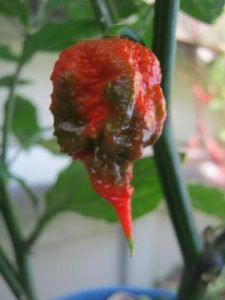One of the ways that students plagiarize, at least when they take material from online and attempt to incorporate it into their papers, is to run a  thesaurus function—such as the synonym option in MSword—on certain words. They seldom trouble themselves with prepositions and articles, but tend to change nouns, adjectives, verbs, and adverbs. Although this can obscure the similarity between their changed text and the original, often it merely mangles the original so profoundly that the signifier becomes overly slippery. Before long, the sentence they have spent precious minutes working on becomes vague where it needs to be precise, and overly exacting where it should be general.
thesaurus function—such as the synonym option in MSword—on certain words. They seldom trouble themselves with prepositions and articles, but tend to change nouns, adjectives, verbs, and adverbs. Although this can obscure the similarity between their changed text and the original, often it merely mangles the original so profoundly that the signifier becomes overly slippery. Before long, the sentence they have spent precious minutes working on becomes vague where it needs to be precise, and overly exacting where it should be general.
Recently, I had my students write their paper on some stories from Thomas King’s 2005 collection of short stories A Short History of Indians in Canada. Often that provides them with rich research material as well as evocative explorations of indigeneity in Canada, but occasionally the plagiarizing student reaches for the opportunity to transform slightly awkward sentences found online into masterpieces of bizarre obfuscation and inadvertent poetic juxtaposition.
In this case, they chose to take some lines from an Amazon review of Thomas King’s short story collection, but their modifications became much more interesting than their source. The sentence they chose makes a statement about King’s novel which may be a bit overwrought and awkward, but generally is comprehensible: “Other times, as in King’s groundbreaking novel, Green Grass, Running Water, postcolonial work has borne truly remarkable, heartbreaking, mind-altering fruit.”
The principal argument of the sentence, that postcolonial texts are at once noteworthy, emotionally evocative, and can change their reader’s mind, is clumsily hidden behind a fruit analogy. The postcolonial text bears fruit which has these qualities, and King’s novel is just one example of that fecundity.
The grammar of such a sentence—already stretched by the analogy—staggers under the extra burden of tinkering with key words. The simple sentence is easier to modify and is much more tolerant of mistakes, but the complex utterance, with its witty attempt at metaphorical language, is stubbornly resistant.
My student made seemingly innocent changes to the words, but the sentence they produced by that method became comically incoherent, especially when they struggled to both mimic the analogy and obscure that they had taken it from an online source: “At other times, like King’s epoch-making novel Greengrass, Running Water work after the colonial era brings a truly remarkable, mind-burning, fruit-changing mind.”
The original “other times” has seemingly taken on an extra time dimension, as now post-colonial work is only remarkable “at other times” and most certainly not at this time. Even the simple conversion of “as in” to “like”  means that King’s novel—especially with the missing comma after the title—does not exhibit the tendencies of the postcolonial text, but rather becomes an adjective for work from a posterior colonial period that is similar to something.
means that King’s novel—especially with the missing comma after the title—does not exhibit the tendencies of the postcolonial text, but rather becomes an adjective for work from a posterior colonial period that is similar to something.
My student also changed “groundbreaking” to “epoch-making,” likely because a synonym generator told them the words were equivalent, but now King’s novel has become much more profound. It does not merely lay the foundation for a tradition—in the sense of breaking ground for an enduring structure—but now it has transformed an entire epoch. They have used the same strategy on the theory term “postcolonial,” but now they have changed a theoretical definition widely used in cultural studies to examine the effects of exploitation to something that merely happens after colonization. King’s novel is now lumped in with anything that was produced after the “colonial era,” if that even means anything in the thoroughly colonized Canada of the present day. The term which lent meaning to the novel, now merely defines its publication date.
Perhaps because they didn’t understand the use of the word “borne” and how it  contributes to the original analogy, they changed that to “brings.” Even if that were the only change made to the sentence, it would still destroy the analogy, as the novel would then be responsible for the delivery of fruit rather than its generation.
contributes to the original analogy, they changed that to “brings.” Even if that were the only change made to the sentence, it would still destroy the analogy, as the novel would then be responsible for the delivery of fruit rather than its generation.
Wisely, in terms of meaning, if not in terms of detection, they retained “truly remarkable” although they could easily have changed those terms without upsetting the meaning of the sentence as a whole. “Truly” might easily become “actually” or “correctly” (at least that’s what my word processor spit out), and “remarkable” could have become “outstanding” or “significant.” Once this is spliced into the original sentence, the meaning changes little: “Other times, as in King’s groundbreaking novel, Green Grass, Running Water, postcolonial work has borne actually outstanding, heartbreaking, mind-altering fruit” or “Other times, as in King’s groundbreaking novel, Green Grass, Running Water, postcolonial work has borne correctly significant, heartbreaking, mind-altering fruit.” It is not a great sentence, but it would only annoy those who are trained to watch for diction errors.
Oddly, those two words remain intact in the sentence, and instead my student chose to change “heartbreaking” to “mind-burning” and “mind-altering fruit” to “fruit-changing mind.” The sentence takes on a terrible  splendor as a result of these arbitrary changes. A “heartbreaking” moment could certainly be described as “mind-burning,” but it would certainly give the listener pause. The notion of sorrow and empathy are gone, and all that is left is a devastating physical effect on the brain. The emotional content has been sacrificed in order to prioritize the intellectual destruction, and any notion of empathy has been lost in the general mental conflagration.
splendor as a result of these arbitrary changes. A “heartbreaking” moment could certainly be described as “mind-burning,” but it would certainly give the listener pause. The notion of sorrow and empathy are gone, and all that is left is a devastating physical effect on the brain. The emotional content has been sacrificed in order to prioritize the intellectual destruction, and any notion of empathy has been lost in the general mental conflagration.
As the reader has already come to realize, I am slowly moving toward the most daring change the student made. The “mind-altering fruit” has been—perhaps arbitrarily—changed to “fruit-changing mind.” Throwing caution to the winds, the student has switched the noun “fruit” to make it part of a compound adjective, and taken the “mind” portion of the compound adjective and made it the noun. This radical change no doubt felt like a risk to the student, but they likely had no idea what abortive monstrosity they had created. Rising Caliban-like from the stilted prose of the original, King’s novel has created a mind which can change fruit. The mind that has become the sentence’s focus, even as it “burns” in a “remarkable” and self-referential fashion, has taken on a superpower that many a culinary expert would wish to possess. The mind that can change fruit, presumably from one fruit to another—the sentence is recalcitrant on the exact nature of the gift—but very possibly into anything. This prophetic shift, as I imply above, has also distorted the earlier changed compound adjective. The adjectives were stacked up dangerously in the original, but now they are positively perilous. The mind that  the sentence is most concerned with not only burns itself, or possibly other minds, but it does so at the same time that it is engaging in “fruit-changing.” The mind has gone from being altered, in the original sentence, to distorting the sentence far beyond its original weave.
the sentence is most concerned with not only burns itself, or possibly other minds, but it does so at the same time that it is engaging in “fruit-changing.” The mind has gone from being altered, in the original sentence, to distorting the sentence far beyond its original weave.
The resultant sentence plods along rather complacently from its humble beginnings in a plagiarized online Amazon review, but without informing the reader their mind is about to be burned and fruit-changed, it makes a sudden, dimension-ignoring lateral shift. At some moment the sentence does not deign to discuss, work posterior to the colonial era—defined by a long string of adjectives part of which are the title of King’s novel—have brought a quite remarkable mind which both can burn itself and change the nature of fruit.
Although this sounds like a warning against plagiarism, regardless of the student’s skill level or understanding of the plagiarized document, I think the inadvertent collision of words that likely have never been lumbered together have much more to say. I did a quick google search for the frequency of the string, “fruit-changing mind,” only to find that out of the “30 trillion unique individual pages” that exist at this historical moment, one website contained the words forced into each other’s company in that exact order. Even that sentence didn’t have the temerity to construct that sentence without a comma to lessen its impact: “change posture life passion fruit, changing mind” (https://flymetothemoon.blog/mammoth_book_dieselpunk.pdf).
In the artificial courage of scholarly desperation, my student has created something that has never existed before, and although some might say that their time was better spent learning how to write instead of modifying the words of another, the end result is both horrifyingly evocative and a clank of a metal tin into a trash can. They have ignored the rules of the language and created a misbegotten monster which will  not survive the birth canal, but they have also stumbled into the morass which is language use. By remaining ignorant of their tools, and by using a thesaurus function like they would a framing hammer, they have spiked their own hand to the bench. They have also, unwittingly, inadvertently, forced their reader to slow down and ponder what can be done when deceit and indolence turn their hand to expression. Much the same way poets force their readers to ponder the slipperiness of the intended meaning, the birth-slime wriggling of the signifier, my student has troubled the very relationship between signifier and signified. Although they have, perhaps inadvertently, earned themselves a failing grade, they have also the distinction of constructing a three-word string that has never before existed.
not survive the birth canal, but they have also stumbled into the morass which is language use. By remaining ignorant of their tools, and by using a thesaurus function like they would a framing hammer, they have spiked their own hand to the bench. They have also, unwittingly, inadvertently, forced their reader to slow down and ponder what can be done when deceit and indolence turn their hand to expression. Much the same way poets force their readers to ponder the slipperiness of the intended meaning, the birth-slime wriggling of the signifier, my student has troubled the very relationship between signifier and signified. Although they have, perhaps inadvertently, earned themselves a failing grade, they have also the distinction of constructing a three-word string that has never before existed.
Original Sentence:
Other times, as in King’s groundbreaking novel, Green Grass, Running Water, postcolonial work has borne truly remarkable, heartbreaking, mind-altering fruit.”
Modified by my plagiarizing student:
At other times, like King’s epoch-making novel Greengrass, Running Water work after the colonial era brings a truly remarkable, mind-burning, fruit-changing mind.”
